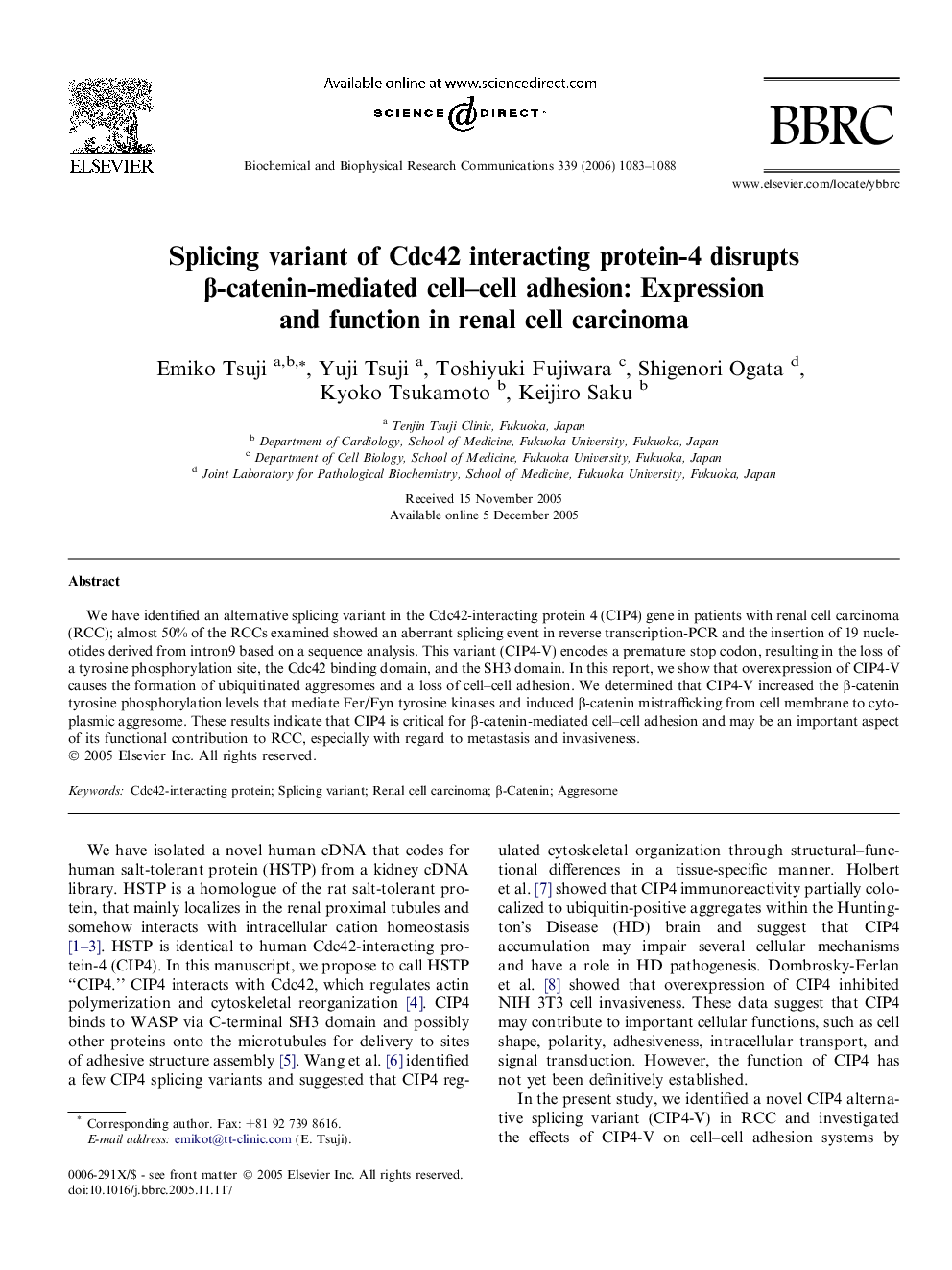| Article ID | Journal | Published Year | Pages | File Type |
|---|---|---|---|---|
| 1940863 | Biochemical and Biophysical Research Communications | 2006 | 6 Pages |
We have identified an alternative splicing variant in the Cdc42-interacting protein 4 (CIP4) gene in patients with renal cell carcinoma (RCC); almost 50% of the RCCs examined showed an aberrant splicing event in reverse transcription-PCR and the insertion of 19 nucleotides derived from intron9 based on a sequence analysis. This variant (CIP4-V) encodes a premature stop codon, resulting in the loss of a tyrosine phosphorylation site, the Cdc42 binding domain, and the SH3 domain. In this report, we show that overexpression of CIP4-V causes the formation of ubiquitinated aggresomes and a loss of cell–cell adhesion. We determined that CIP4-V increased the β-catenin tyrosine phosphorylation levels that mediate Fer/Fyn tyrosine kinases and induced β-catenin mistrafficking from cell membrane to cytoplasmic aggresome. These results indicate that CIP4 is critical for β-catenin-mediated cell–cell adhesion and may be an important aspect of its functional contribution to RCC, especially with regard to metastasis and invasiveness.
